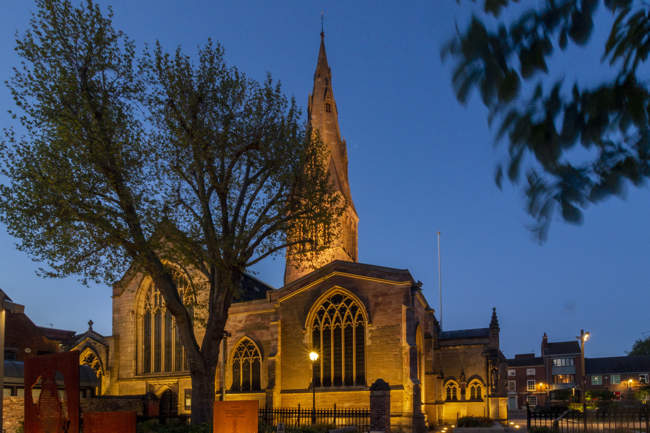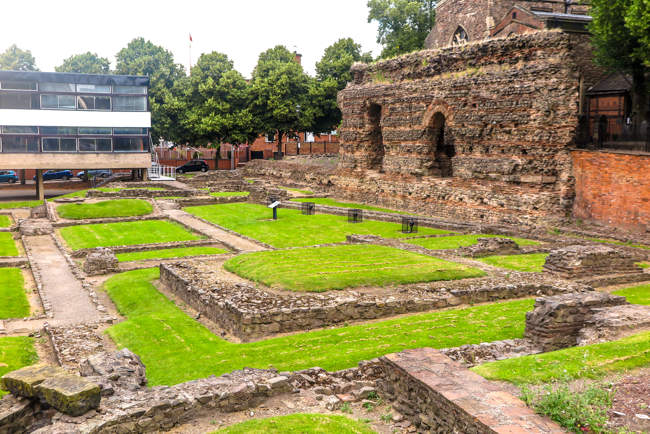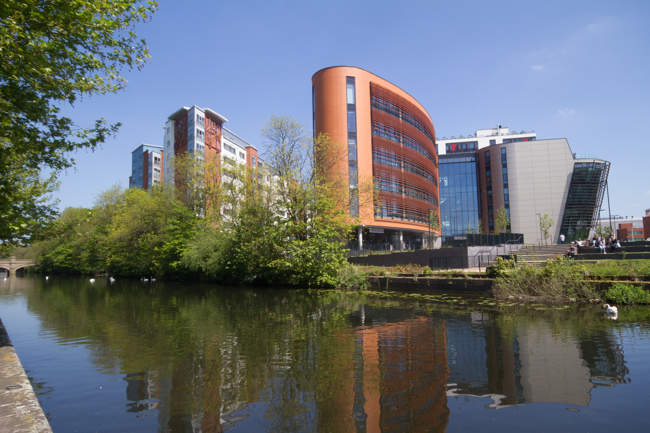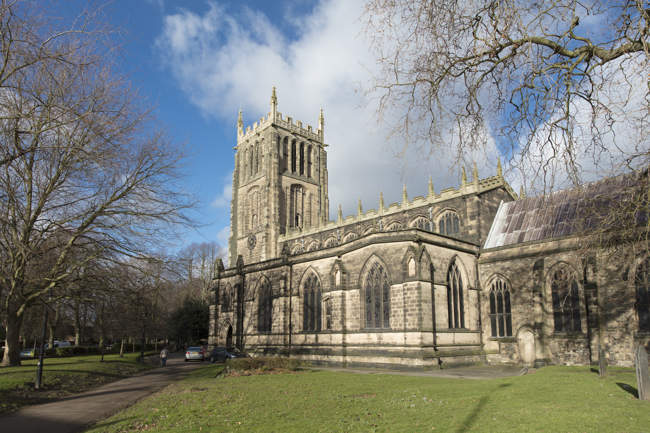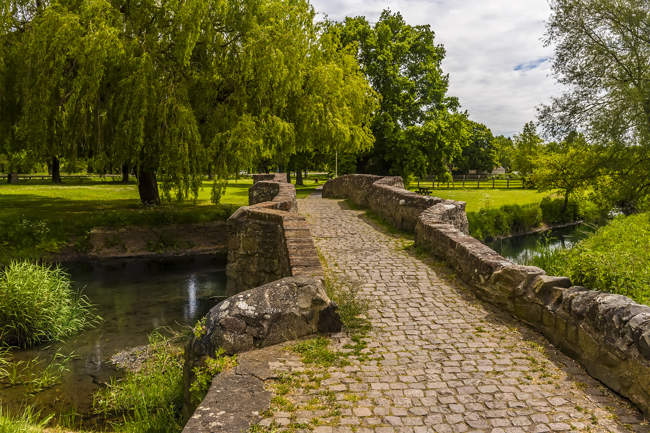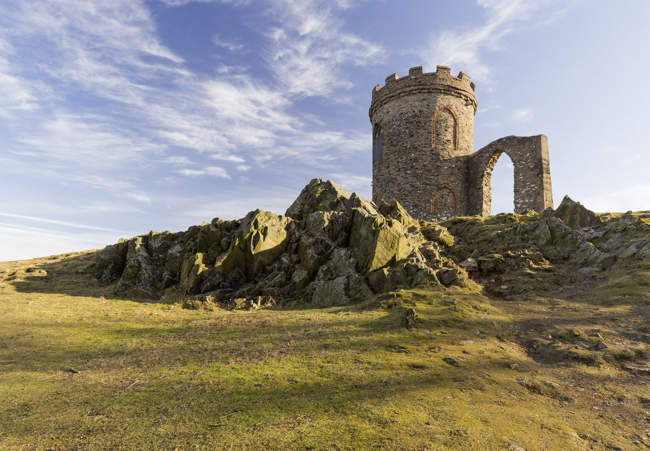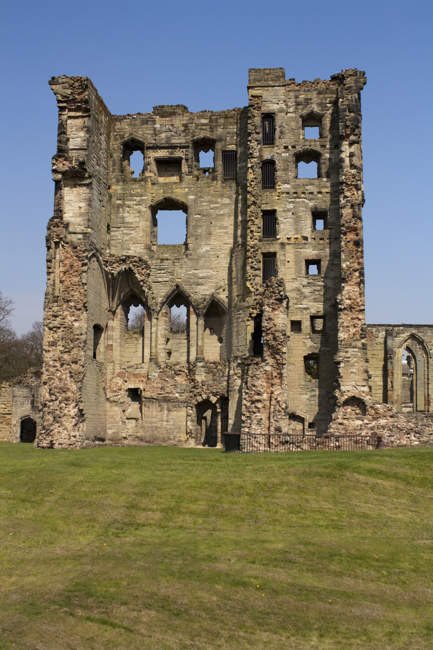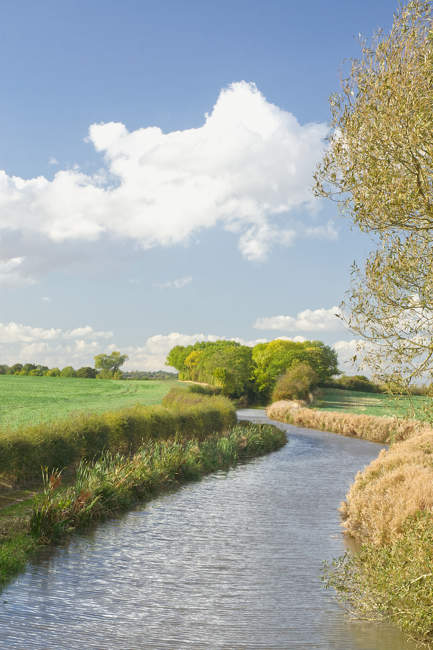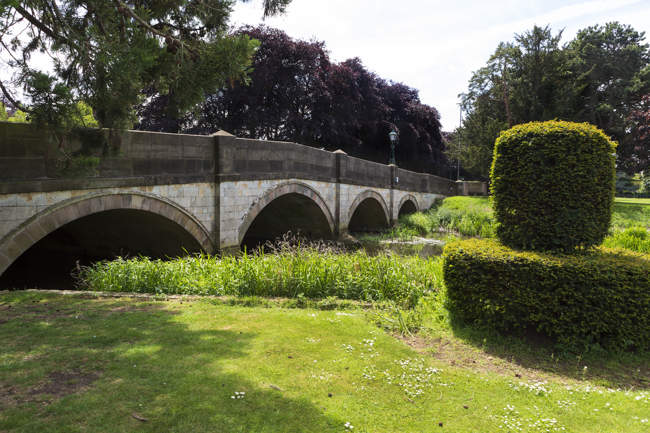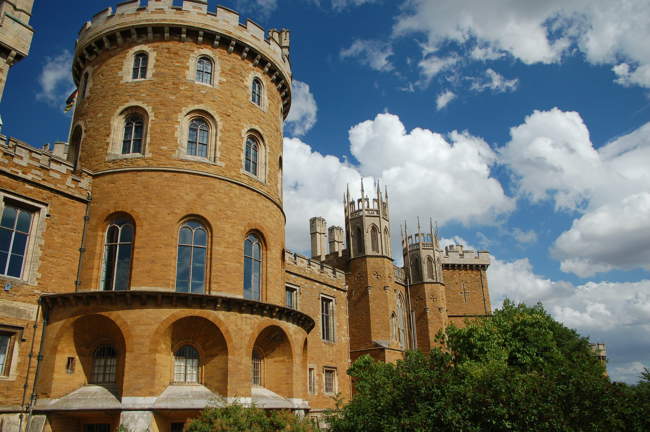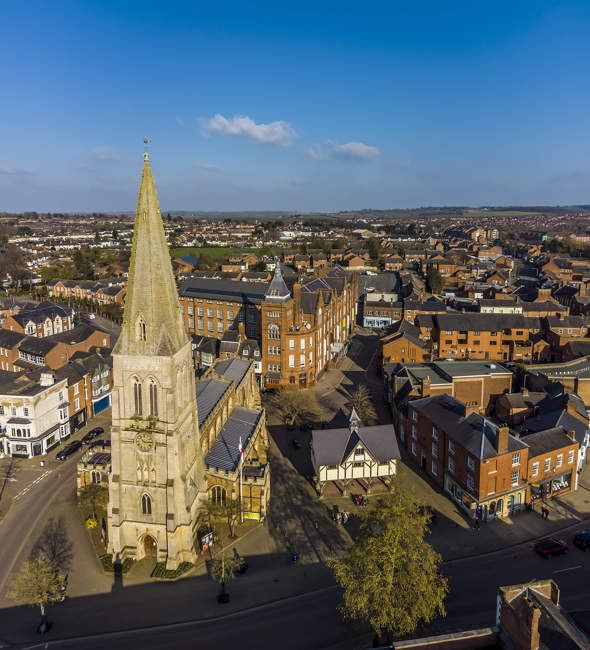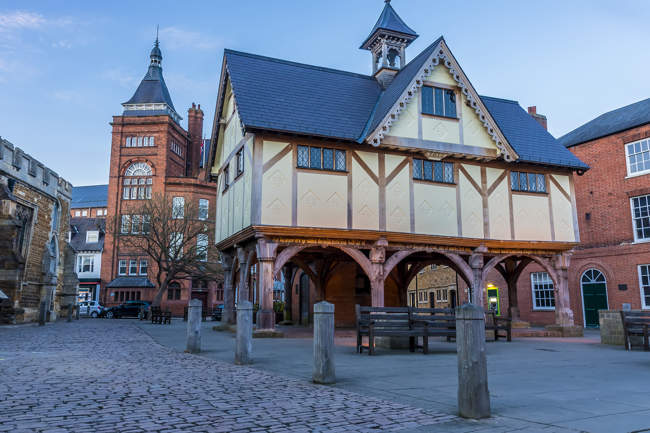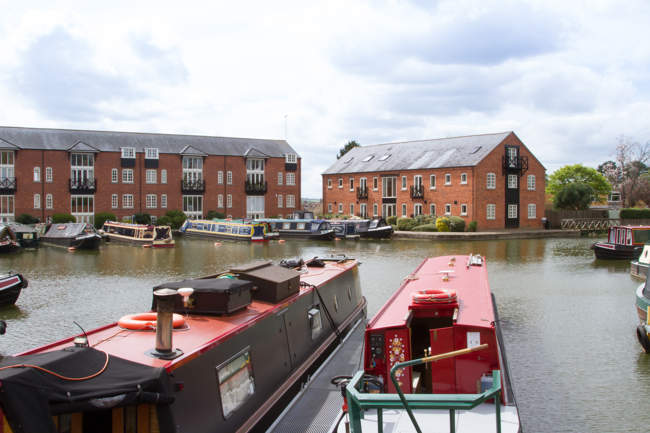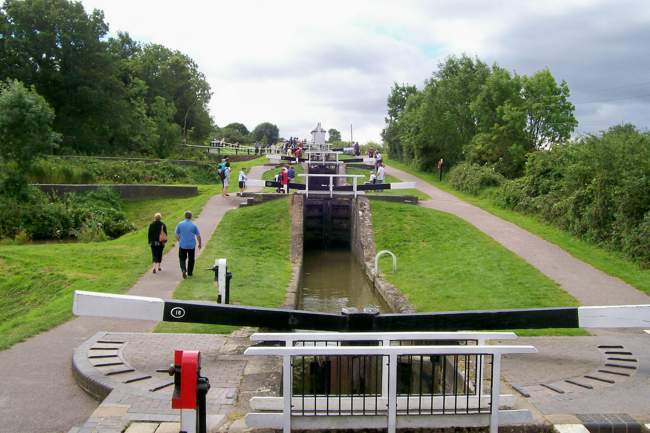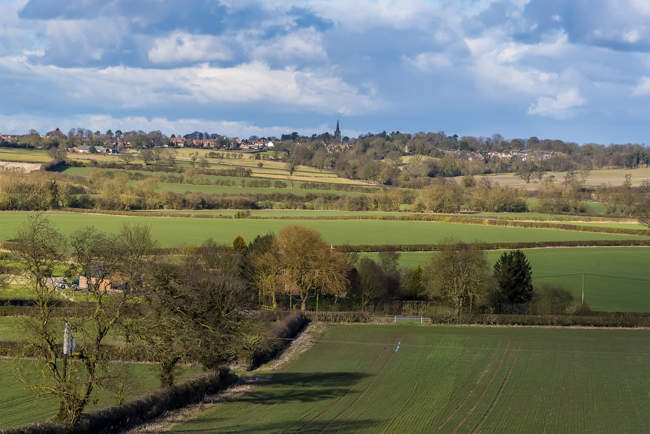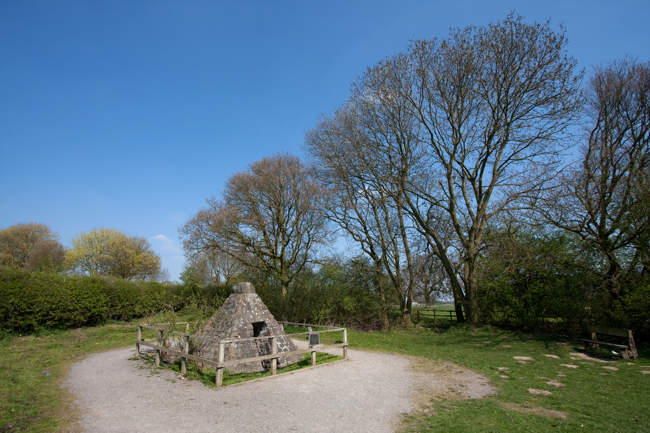Things to do in Leicestershire
Things to do in Leicestershire
Days out in Leicestershire
Places to visit in Leicestershire
Leicestershire - in the East Midlands of England - is a fascinating county to visit.
At its centre, situated on the River Soar and Grand Union Canal, is the county town and Cathedral City of Leicester.
This is a vibrant, multi-cultural place whose history can be traced back to Roman times.It's a city which has moved with the times too - the National Space Centre is to be found here and it makes a fascinating contrast with the wealth of historical interest in the county.
A variety of guided tours of the city are available and these are great for first time visitors.Leicestershire's countryside is varied: There are country parks, pretty villages and historic market towns along with plenty of attractions to interest all the family.
There are ample opportunities for walking, cycling and fishing.
The Leicestershire Tourist Information centre in Loughborough is the place to visit for information about the town and surrounding countryside.
The north of Leicestershire is dominated by the rocky crags and heath lands of Charnwood Forest.
The town of Anstey was historically the gateway to Charnwood Forest.
Once densely wooded, the forest was an important source of wood for the charcoal industry. Consequently, it was stripped over the years.There is evidence of Roman and Saxon settlements to be found, along with medieval abbeys and ancient quarries.
Outwoods is a site of special scientific interest, situated on a high ridge overlooking Loughborough and the Soar Valley.
Today, the area encompasses several country parks (don't miss Bradgate Park with its folly called Old John), gardens and visitor attractions.
Fine views over the River Soar valley can be enjoyed from Mountsorrel and from Bardon Hill - the highest point.The bell tower at Loughborough can be seen from Beacon Hill.
The National Forest is a new forest in the heart of England which covers a large part of north west Leicestershire.
Existing woodland is being augmented by planting new trees to create natural landscapes and habitats for wildlife. Visitors to the forest are encouraged to plant a new tree.
The visitor centre - 'Conkers' - is dedicated to the natural world and you can learn more about the National Forest here.
Best Villages in Leicestershire Chart
| Name | Highlight | Population |
|---|---|---|
| 1. Glen Parva | Manor House dating from 1452 | 6,189 |
| 2. Wymeswold | Many listed Georgian buildings | 1,296 |
| 3. Peatling Parva | Thatches Cottages | 181 |
| 4. Muston | Nature Reserve | 339 |
The nearby historic town Ashby de la Zouch, has fine Elizabethan half-timbered houses and delightful bow fronted Georgian shop fronts.
Ashby de la Zouch Castle was the inspiration for the setting of the tournament in the novel 'Ivanhoe' by Sir Walter Scott.
An outing along the Ashby Canal brings you to the 19th century blast furnace at Moira.
At Coalville, a former colliery has been transformed into the fascinating Snibston Discovery Park.
Leicestershire Tourism for the north east of the county can be found in Melton Mowbray.
You could enjoy one of the famous Melton Mowbray pies while you're here.
Other local specialities are delicious Stilton Cheese and Melton Hunt Cake.The story of how these fit into the town's history can be found at the Melton Carnegie Museum.
The beautiful countryside of the Wolds is worth exploring - from the valley of the River Eye, to the Vale of Belvoir in the north.
South Leicestershire has tranquil, open countryside with tiny hamlets and little villages built of local ironstone.A branch of the Grand Union Canal
links Leicester with the attractive town Market Harborough via uniquely engineered, multiple locks at Foxton.In west Leicestershire you can visit the site of the decisive battle in the Wars of the Roses.
The Battle of Bosworth took place here in 1485. There is a visitor centre with a wealth of exhibits and information. These include models, flags, armour, a film theatre and trails to King Richard the III's well.The market town of Market Bosworth can be found to the north. This is a pleasant town with thatched cottages, Georgian buildings and several specialist shops.
There are good family attractions in the area, such as Twycross Zoo, Bosworth Water Trust - a 50 acre leisure park - and Mallory Park racing circuit.
If you're visiting Leicester with your toddlers, have a look at our guide: Fun things to do in Leicester with Toddlers
Days out in Leicestershire
-
Ashby de la Zouch Castle
Ashby - a royalist stronghold. Tour the impressive ruins of a grand medieval castle within extensive and beautiful grounds. -
Ashby-de-la-Zouch Museum
Ashby Museum re-opened on Easter Saturday 2007, with a new two-storey extension housing a Community Room and Archives Room, and two revamped Exhibition Galleries. -
Barnsdale Gardens
Barnsdale Gardens is a joy to visit; 38 themed gardens, ponds and woodlands nestled in a quiet corner of the beautiful Rutland countryside, but just 10 minutes from Stamford and the A1. -
Belvoir Castle
Belvoir Castle has been the ancestral home of the Duke and Duchess of Rutland for one thousand years. The name Belvoir means 'beautiful view' and dates from Norman times. -
Charnwood Museum
Charnwood Museum features a wide range of exhibits reflecting thehistory, geology, archaeology and industries of Charnwood and thesurrounding area. Permanent displays include 'Coming to Charnwoo -
Donington le Heath Manor House
Step back in time and experience how people really lived in Medieval, Tudor and Stuart Times at Donington le Heath Manor House. -
Gorse Hill City Farm
Gorse Hill City Farm is a working farm with the opportunity to feed and touch the animals. -
Great Central Railway
The Great Central Railway is Britain's only double track main line heritage railway. The stations of this railway are restored to different periods of the main line's history. -
Harborough Museum
The Museum has been revamped to display one of the most significant Iron Age finds in Britain - the Hallaton Treasure! -
Leicester Racecourse
Extending to 200 acres and steeped in more than 100 years of history, the Leicester Racecourse estate provides the perfect venue for the private or business client. -
Melton Carnegie Museum
This exciting newly refurbished museum contains informative and innovative displays. -
National Gas Museum
At the Gas Museum you will gain a fascinating insight into the story of gas past and present, with particular reference to the East Midlands region. -
National Space Centre
The award winning National Space Centre is the UK's largest attraction dedicated to space. -
Oakham Castle
The splendid Great Hall of Oakham Castle is one of the finest examples of late 12th century domestic architecture in England. -
Rutland County Museum
Rutland is England's smallest county - and Rutland County Museum is the perfect introduction to all that the area has to offer. -
Stanford Hall
Stanford, where Shakespeare's Avon flows gently through the Park, has been the home of the Cave family, ancestors of the present owner Lady Braye since 1430.
Places to Visit in Leicestershire
-
Anstey
Anstey's role as a southern gateway to the Charnwood Forest is shown by the 15th century Packhorse Bridge, just a mere 5 feet wide, straddling Rothley River. -
Ashby de la Zouch
The unusual name of Ashby de la Zouch is derived from the Breton nobleman, who inherited the estate through marriage in the 12th century. Ashby developed into a Spa town in the 19th century. -
Aston Flamville
Aston Flamville - The small church of St. Peters was considerably rebuilt in 1874, but retained one of the original Norman windows. -
Barrow-on-Soar
Barrow is on the east bank of the Soar, with good mooring and shopping facilities, a pleasant stopping point for boaters. Barrow can trace its roots back to at least Roman times. The much restored Holy Trinity Church is of 14th century origin. -
Birstall
Birstall has become a major dormitory area for Leicester, but there are several examples of its earlier history in evidence. -
Blaby
Much of the older part of Blaby village has been designated as a conservation area. It includes the 12th century parish church of All Saints, a thatched and timbered inn dating from about 1485. -
Brooksby
Brooksby is now home to the county's Agricultural College, but was once the seat of the Villiers family. Its most famous son, George, born in 1592 at Brooksby, rose to be the favourite of two Stuart monarchs. -
Cosby
It is difficult to trace exactly where the name Cosby stems from, but it first appears in the Domesday Book when it was spelt by the scribes as Cossebi. Historian John Nicholls, writing in 1810, described it as a 'considerable village'. -
Countesthorpe
The name Countesthorpe comes from the 11th century when the area formed part of the marriage dowry of the Countess Judith niece of William the Conqueror, 'thorpe' having the gothic meaning of 'land'. -
Croft
Croft is a village of interest and character dominated by extensive quarry working which provide high quality granite. These workings are reputed to have been used for the Fosse Way. -
Cropston
Cropston is a picturesque village, close to the late 19th century reservoir, which takes its name from the village. -
Elmesthorpe
The parish of Elmesthorpe has strong connections with King Richard III and the Battle of Bosworth. -
Enderby
Enderby - The St. Johns area of the parish is separated from the main village, which is where the ancient village of Aldeby stood. Mentioned in the Domesday Book, this village was deserted probably in the 12th century. -
Glen Parva
Glen Parva - The Manor House is of interest, dating back to the 14th century and local records suggest that the ill-fated King Charles I stayed there after the Battle of Naseby. -
Glenfield
Glenfield has a prominent place in railway history, with the opening of the Swannington Leicester line, the first railway line south of Manchester. -
Great Glen
Great Glen is a historic village located in the beautiful South Leicestershire countryside. Perfect for a great day out, Great Glen offers visitors many things to visit/do, including: Wistow Maze and Rural centre, a large village Library -
Kilby
Kilby - A medieval village once surrounded the church at Kilby. The church itself was built on the site of an earlier structure in the year 1858. -
Kirby Muxloe
One of the country's most important monuments is in the parish of Kirby Muxloe. Built in the late 15th century by Lord Hastings, who was executed in 1483 before the building was completed, Kirby Muxloe Castle now has a Grade I listing. -
Leicester
Leicester is one of the few cities in England that can trace its growth from the Iron Age. In Leicester you can travel through the ages, and learn about the history of the city in its excellent Museums, and by taking an Old Town Heritage Trail -
Loughborough
Loughborough, with its unique atmosphere and wealth of historic buildings, is the principal town of the Borough of Charnwood, which is one of the largest Boroughs within Leicestershire. -
Lutterworth
Lutterworth is an attractive town with some well preserved half-timbered buildings and an 18th century bridge, which spans the River Swift in a series of three arches. -
Market Bosworth
Market Bosworth, was recorded in the Domesday Book and has been an important market town since the middle ages. The famous Battle of Bosworth, which ended the Wars of the Roses in 1485, took place nearby. -
Market Harborough
Market Harborough is a rare example of a planned medieval 'new town'. Market Harborough was created in the 12th century especially to be a market and promote local trade. -
Melton Mowbray
The Market town of Melton Mowbray in Leicestershire, perhaps most famous for its Pork Pies, is situated in Fox Hunting country, where the three hunts The Quorn, The Belvoir and the Cottesmore meet. -
Mountsorrel
Mountsorrel is situated on the old A6 route, seven miles north of Leicester and four miles from Loughborough. -
Newtown Linford
Newtown Linford is set against a backdrop of the Charnwood woodlands, making it a very photogenic village with its thatched dwellings and timbered style buildings. -
Normanton upon Soar
Normanton on Soar is a small, pretty, well kept 12th century village which sits on the border of Nottinghamshire and Leicestershire. -
Norton juxta Twycross
Norton juxta Twycross today is a quiet and peaceful little village in Leicestershire, close to the Warwickshire border and is bounded on the east side by the Ashby Canal. -
Queniborough
Queniborough is a pleasing conservation village with visible links back to the Civil War period. A 175 feet high crocketed spire, acknowledged by Pevsner to be one of the finest in Leicestershire, caps St. Mary's Church. -
Quorn
Quorn is known world-wide for its link with Hugo Meynell, a dominant figure in English foxhunting who lived at Quorn Hall from 1753-1800. -
Ratcliffe
Ratcliffe is sited between the banks of the River Wreake and the main A46 highway. Home to Ratcliffe College, started by Pugin in 1844 as the first Roman Catholic College in England since the Reformation. -
Rothley
Rothley is another stop on the Great Central Railway, a quiet village on the eastern edge of the Charnwood Forest, originally built around Rothley Brook, a tributary of the Soar. -
Sapcote
The name Sapcote could have an agricultural connection with Sheepcote or with Soapwell, a well in Station Road where in 1806 a bath house was built by John Frewen Turner. -
Saxby
The Great County of Leicestershire lies at the very heart of the nation with history woven into the very fabric of its landscape. -
Seagrave
Seagrave is situated just minutes from the busy A46; it is a secluded and picturesque village, with red roofed houses and distinctive church. -
Shepshed
Shepshed stands to the west of the M1 motorway and was formerly dominated by the hosiery industry. It still offers factory outlet shopping for knitwear and sports clothing. -
Sileby
Sileby is situated on the eastern side of the Soar Valley, it is a mix of residential and light industry. -
Stoney Stanton
Stoney Stanton has a long history of stone quarrying going back to the Romans. After the Second World War the quarrying business came to an end, but not before thousands of tons of rock had been extracted, leaving deep water filled areas. -
Swithland
Swithland is a pleasant Forest village close to both the Woods and Reservoir, which also bear its name. The village is known well beyond Charnwood for its dark blue slate, which produced roofing material from the times of the Romans to the 19th century. -
Syston
In Victorian times Syston was a busy cattle dealing town. There is still evidence of the late 18th century development in its conservation area around the parish church of St. Peter. -
Thrussington
Thrussington has some interesting 18th century properties surrounding the village green. It is the birthplace in 1782, of artist, John Ferneley, who depicted much of Leicestershire's 19th century hunting scene. -
Thurcaston
Thurcaston claims to be the birthplace of the martyred Tudor Bishop, Hugh Latimer. As a youth, he may well have been familiar with All Saints Church, parts of which date back to Norman times. -
Walton-on-the-Wolds
Walton-on-the-Wolds was the home in the 19th century of Augustus Hobart-Hampden, better known as Hobart Pasha, who had an adventurous naval career. -
Whetstone
Whetstone - The 1086 Domesday Survey records Whetstone as having 24 peasants, 11 villeins, one man at arms and a windmill. -
Woodhouse Eaves
Woodhouse Eaves is at the heart of the Charnwood Forest. Close to Beacon Hill (818 feet high), where once existed an Iron Age settlement. -
Wymeswold
Wymeswold lies a few miles to the north east of Loughborough. It is now a large and popular conservation village, with some fine Georgian buildings, over 30 of the houses are now Grade 2 listed buildings.
